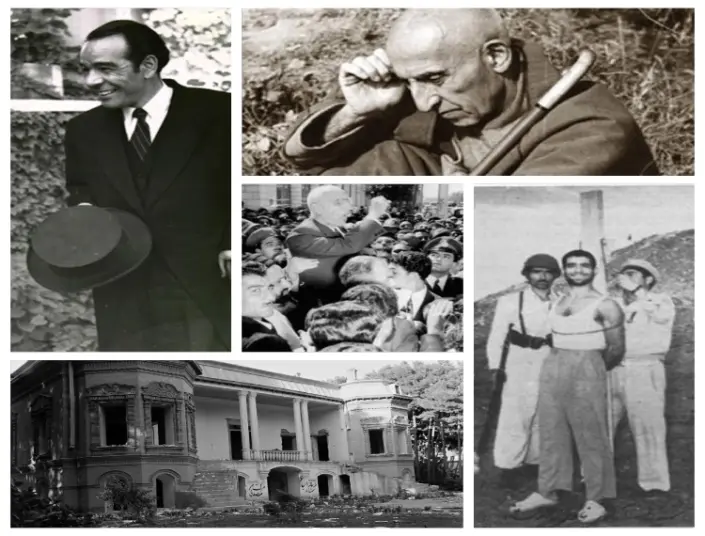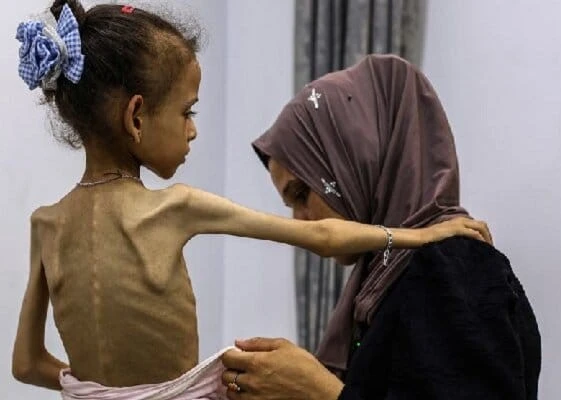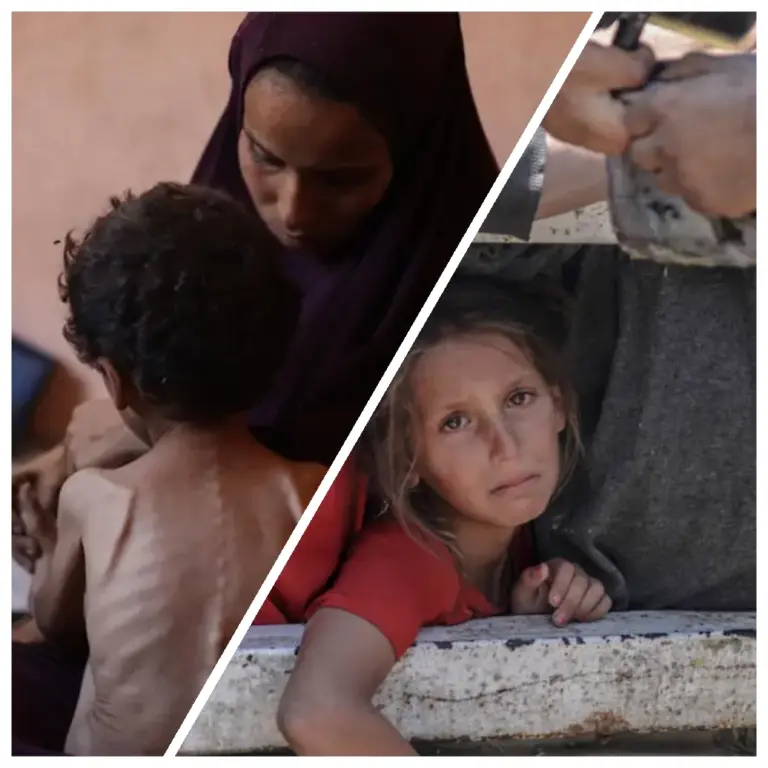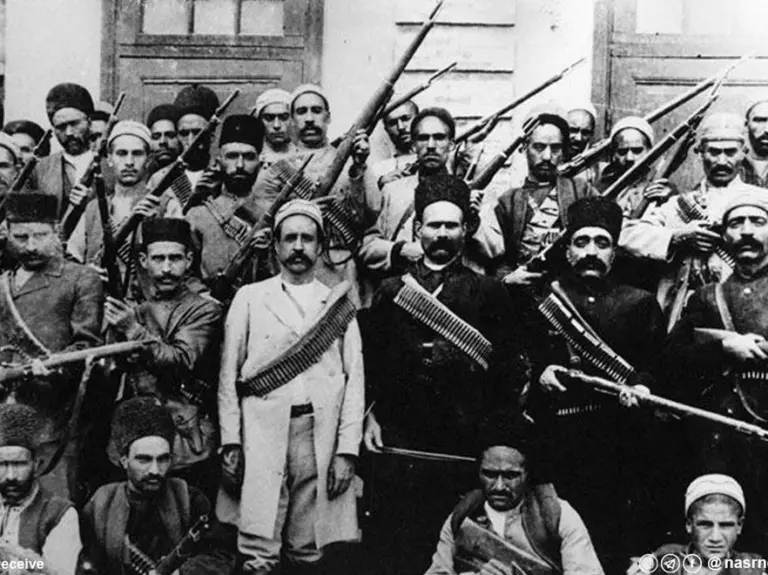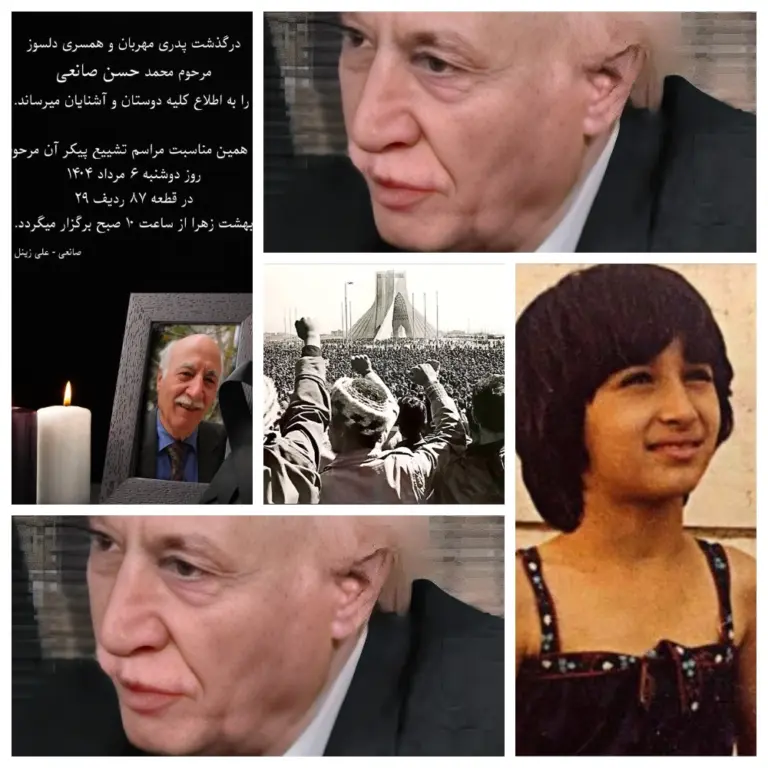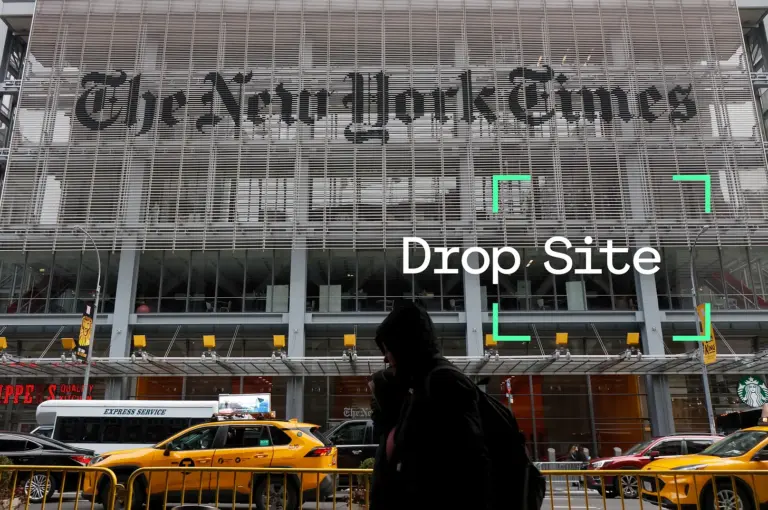
R.nr 161 2013-01-13
I.G.e.v
PB 260268
50515 Cologne
Germany
Behruz Khaligh@fadai.org
Tel-Fax 00492213777691
Statement by the Central Council of Iranian People’s Fedaian (Majority)
on Negotiations with the US, Nuclear Program and (Economic) Sanctions
Danger of Disintegration of Country’s Economic and Social Structures
Need for Change in Policies and Making Major Decisions!
It is necessary that opposition forces unite and be prepared to, on one hand, take part in political debates, take necessary measures for the upcoming developments and to press Iranian regime for changes in the major policies and make major decisions and, on the other hand, for improving the current situation, demanding freedom for prisoners of conscience, securing political freedom, holding free elections, and enhancing the living conditions of the peoples.
Central Council of the Iranian People’s Fedaian Organization (Majority)
Victory of Barak Obama in the United States (US) elections has brought about a new atmosphere to the relations between Iran and US. As a result of this election and clear statements in Barak Obama’s inaugural speech on terminating a decade of war in the region, the likelihood of using diplomacy to resolve the nuclear crisis has increased and the danger of military invasion of Iran has declined for the time being. Compared to four years ago, Barak Obama has stepped forward more forcefully and offered direct and mutual negotiations to the Islamic Republic (IR). Such mutual negotiations can open the way for resolving nuclear crisis and terminate the three and a half-decade-old hostile relations between the two countries.
Obama administration has reduced differences with its allies and followed a united and effective policy toward the IR by using diplomacy on one hand and enforcement of paralyzing sanctions on the other hand.
Obama administration is enforcing paralyzing sanctions while offering direct negotiations. In line with this policy, Washington will enforce new sanctions on February 6th the goal of which is to block Iran’s gaining revenue from selling petroleum. Also, the European Union (EU) has just approved new series of sanctions on Iran which target the banking sector, maritime privileges, natural gas export and certain Iranian companies and individuals. According to these sanctions, export of Iranian natural gas to European countries will be prohibited and number of the listed Iranian companies and individuals will approach 490 and 15, respectively.
Outcome of the International Sanctions and Increasing Economic Crisis
International sanctions have damaged Iran’s economy tremendously. The oil export has dropped to less than a million barrels a day. According to the Iranian minister of Economy and Finance, oil revenues have decreased %50 because of the sanctions, and currency exchange system has been seriously impacted. China, Japan, India, South Korea, and Turkey (i.e., the major Iranian oil buyers) have reduced their purchases. Obama administration meanwhile presses all buyers to reduce their Iranian oil purchase %20 every 6 months. The reality is that reduction in export of Iranian oil has not increased the price of oil, because sanctions have shifted the production increase to Saudi Arabia and Iraq.
Consequently oil export reduction has decreased government revenues and has caused budgetary deficits. Such deficits will result in the intensification of economic depression, inflation, unemployment, decrease in the infrastructure investment and inability to pay for government expenditures including employee salaries.
During the presidency of Ahmadinejad, agricultural and industrial productions have experienced serious setbacks and import of consumer products has replaced internal productions and the economy has become more dependent on imports and currency exchange. Consequently, reduction in oil revenues has seriously impacted all major economic indices including rate of growth, investments, rate of return for investment and productions as well as increases in poverty, unemployment and inflation.
The effect of sanctions can clearly be seen in the increase of exchange rate for dollar from 12000 to 34000 Rials in one year, closure of production facilities and reduction of their output capacity. According to the Chair of Budget and Programing commission in the Iranian Parliament, %60 to %70 of factories has been closed, and others are operating at less than 30% of their capacity.
Sanctions have caused increase in prices for necessary items. The IMF has announced that Iran with 27% inflation is the 4th amongst 184 counties in the world.
Polls by the Iranian Parliament Center for Research of 98 major producers in the country have shown that between Septembers of 2011 and 2012 the rates of production and employment in these establishments have decreased by 40% and 36%, respectively. During the same period, the price for their products have increased by 87% while the cost of their raw materials has increased by 112%.
Sanctions and Living Conditions of Iranian People
Despite tolerating heavy pressures, the IR still can confront the sanctions using half as much the income from petroleum and the existing currency reserves as well as by circumventing certain sanctions with help from Russia, China and Iraq while suffering from numerous difficulties. However, upon continuation and intensification of sanctions, the income from petroleum will steadily drop, avenues for circumventing sanctions will be identified and blocked one after another by the US and EU. As a result, pressure loops will be further tightened, the regime’s options for the toleration of sanctions will become more limited and the danger for crumpling of country’s economic and social life-grid increases.
Those sanctions enforced so far have pushed living conditions of workers, peasants, middle strata and the underprivileged toward poverty and catastrophe. The inflation stemming from the sanctions coupled with government’s incompetency have reduced buying power of majority of people and made their lives difficult and disastrous. Discontent with regime’s policies and country’s economic conditions has gone beyond the workers, peasants, the underprivileged and the modern middle class and has spread into the traditional groups which support the IR, middle layers and even managers in the manufacturing sector. Discontent has spread among majority of people now.
During the past years, discontents did not entail explosive conditions due to substantial income from petroleum, increasing government budget and distribution of copious amounts of money in the society through various governmental projects. Then, the money from petroleum along with state subsidies were relieving difficulties in the society. However, due to budget deficit and decrease in petroleum revenue, the government will not be capable even of covering its own necessary expenditures and, therefore, introduction of money into the society will continually decrease. In such a situation, discontent will escalate.
Islamic Republic (IR) and relations with USA
The destructive consequences of international sanctions on the country’s economy and life of majority of people cannot be denied. The IR operators are hardly pronouncing the Security Council approvals as wavering notes (sketchy notes / pieces of torn papers). However, most of the IR Guardian Corps (IRGC, aka Sepah Pasdaran) commanders, the extreme right and part of the traditional right are still against direct talks with the USA. Ali Saeidi the representative of the Supreme Leader at IRGC stated that “negotiation with the USA is a trap setup by the enemy for us. In this economic crisis manufacturing, the enemy wants to act similar to the time of peace (treaty between Iran and Iraq) when the late Imam (Khomeini) had to take the glass of toxin, and force the prudent leader of revolution to negotiate.”
Mr. Khamenei who has so far represented and steered the wants of these forces, rejected Barak Obama’s invitation for talks and negotiations, as offered during his first round of USA presidency, and stated that they say that they have extended hand to Iran but we say that such gesture has no value or meaning if USA has hidden an iron hand under a velvety glove. He holds the main responsibility for the current situation, is currently being pressed by two forces within the government, one seeking the status quo and the other after modification of policies for preservation of the (Islamic) order.
The force which wants modified polices, has come to the conclusion that the current situation cannot continue and it is required to start direct negotiations with the USA and resolve the nuclear crisis. The tendency for establishing relations with the USA and terminating hostility between the two countries did exist during the presidency of both Rafsanjani and Khatami. However, this tendency is being expressed by certain principalists including Mahmood Ahmadinezhad. Compared to previous years and with the emergence of destructive consequences of sanctions, this voice has got stronger and found more supporters within the government. Pressure from this tendency and the people is ever increasing on Mr. Khamenei. Keyhan daily newspaper of Saturday, December 8, 2012, printed an article titled “Worn-out revolutionaries and the glass of toxin plot”, which stated “sometime ago one could assume that worn-out revolutionaries were to be found in the circle of reformists. However, events of the recent years and especially recent months revealed that the wearing away and loss of fighting motives is not in monopoly of any specific political group and has afflicted all political elements of the system from any bands and fronts… in this critical time, the worn-out revolutionaries intend to exert a systematic pressure on the leader by targeted engineering of country’s situation.” In view of the article writer, the goal of increase in pressures is to force Khamenei to “take the glass of toxin, retreat and abandon revolutionary positions” and accept negotiating with the USA.
Animosity with the US and enemy fabrication is one of the pillars of the IR. In the beginning of revolution, Ayatollah Khomeini called the US “Great Satan”, symbolized relation between the two countries as those of wolf and sheep and made death to USA and flag burning the motto and daily activity of his supporters. It was him who theorized the war with Iraq to “capture of Ghods (Jerusalem)” and, of course under pressure, chose to take the glass of toxin. Mr. Khamenei too has decided to institutionalize Khomeini’s heritage and make animosity with the USA as one of the principles of the regime. He has repeatedly called US as evil, Satan, beast and enemy of humanity. Such attitudes have had consequences and caused that part of the social bases of the regime assume US-combating as its own identity as well as that of Islamic Republic.
Beyond country borders, throughout the world, among people in Arabic countries and amid Islamic groups the government leaders have promoted IR as the “tyrant-fighter” and “USA-combatant.” On this basis, they have been successful in finding some supporters.
There are signs of opposition to negotiating with US and compromising on the nuclear issue among the commanders of IRGC. They have benefited the most form US-combating, absorbed huge budgets, employed a remarkable part of country’s financial and technical capabilities for weapon manufacturing and captured the economy and politics of the country. Most of the IRGC commanders see their benefits in continuation of animosity between the two countries. For this very reason, they constitute a serious obstacle for establishing normal relations between Iran and US as well as resolution of the nuclear issue.
On the one hand, the hard cores of power have long-term plans. They believe that IR is the leader of anti-domination Islam and assume that IR is in a suitable position, equipped with modern weapons, has grown into a local power, has made persistent allies in the region and Latin-American countries. They also believe that changes in Arabic countries, known by them as Islamic awakening, are benefiting Islam and the IR. On the other hand, they assume that EU and the US are plagued by deep crisis and faced with their people’s widespread opposition.
In their views, time is against the west but on the side of IR. They believe that they will eventually win if they withstood against the pressures and endured the hardships of current time. Certain experts of the regime also have prescribed resistance strategy for the next two years in order to stabilize country’s situation. They have added that after two years of exerting pressures, the west will inevitably retreat. This strategy has been based upon two shaky pillars: First that the Iranian economy can tolerate paralyzing sanctions for the next two years and secondly that the west will remove the sanctions.
There is another perception within the IR that negotiating and compromising with US on the nuclear issue will not be the end of disagreements rather a beginning for series of disputes on other differences between Iran and US. This perception which has frequently been expressed by different government authorities ranging to the highest ranking individuals stems from the viewpoint that equates negotiating and compromising with US to inevitable retreat and defeat.
Regional Developments and the Fragile Situation of the Islamic Republic
Despite the perception of its operators, Iranian regime is in a fragile situation. The position of the regime has been weakened in the region and its strategic role has been compromised. The Assad regime (in Syria), once a strategic ally of IR, is now endangered and facing a possible downfall. The IR’s unilateral defense of Assad government has not only minimized capability of Iran for playing its role in Syria-related political development but also face ore difficulties both on the local and global sale. For example, it has adversely affected Iran-Turkey relations. Many international institutions, major countries as well as Arabic countries have been blaming Iran along with Syria. Turkey has clearly accused Iran of supporting a government which is killing its own people with no regards. Upon continuation of crisis in Syria, this country will no longer be a major base (of operation) for Iran, the connection with Lebanon Hezbollah and Hemas (in Palestine) will significantly be weakened and the IR will sustain a big loss.
Mentality of people in Sunni (dominated) countries has been negatively impacted by IR’s support of the Assad regime. Hemas has put a distance between itself and the IR and has sided more with Egypt, Saudi Arabia and Ghatar. Evidences, including that surfaced in the recent meeting of the “Gulf Cooperation Council”, and the trend of likely events in the region indicate that the pressures by the countries in the Middle East and super powers on IR will increase.
During the past eight years, the IR has increasingly been isolated on global scale and international pressures on the country have become unbearable. Diplomatic relations, economic transactions and cultural exchanges between Iran and the global community have never been this low during the past three decades. The IR regime is isolated internally as well and is facing growing crises and challenges.
Need for Change in Policies and Making Major Decisions
Political tensions in international affairs, advancing the nuclear project and economic policies of Ahmadinejad’s administration coupled with sanctions and financial crisis has turned into the central problems of our country. Expansion of sanctions and significant decrease in oil revenues will eventually paralyze the economy and add to the social chaos in the country.
Contrary to the rulers expectations the time is against their interests. 2005 was much better moment to solve the nuclear dispute than it is today. Within the past 8 years US and EU have had the opportunity to impose unified sanctions and now have the upper hands. Consequently the Islamic Republic is facing higher premiums to achieve similar results as the past in negotiations with 5+1 members. Following the hardliners advices in refusing to engage and negotiate will increase the costs to the country exponentially.
With continuation of the current situations, our nation faces a dark and unclear future. The regime has to attempt major changes in the internal and foreign affairs in order to exit the current crisis. Major decisions must be made as our country needs to change direction on political strategies. Considering the direction that the country has taken in the past three and a half decades and especially in the past eight years and with the grip that extremists have on the power structure and the fact that their interest is in continuation the current policies, modification of incumbent policies and making major decisions would be costly. However, such costs have to be paid to prevent catastrophes.
Ayatollah Khamenei still enjoys a special position in the power structure and eventually it is he who has to make the call to engage, negotiate and come to agreement and accept the consequences and also pay the price. The danger exists, however, that instead of bravery he may pursue the wills of right wing extremists and Revolutionary Guards commanders, claiming that “if enemy exerts excessive pressure the Karbala event will be repeated” (Kayhan daily newspaper: Worn-out revolutionaries and the glass of toxin plot). Inside the country also there is a danger that the power block push the critiques from within the system to select between submission, detention, or expatriation.
Action plans
In order to exit the current impasse aggressive policies must be ended, the extremist groups within the government must be contained, IRGC’s interference in the strategic policies and the economy of the country stopped, commanders against the negotiations dismissed, and on the other hands the persecution of dissidents ended. Also, political prisoners of conscience must be freed, political freedom must be secured, provisions for a free election guaranteed, will of workers and wage-earners met and living condition of the people be improved.
The government structure has fractured over the prospect of negotiations with US. In order to open the way for engagements it is necessary that the faction willing to negotiate is encouraged, the extremist forces against negotiations are pressured and isolated and Supreme Leader is pushed to end the predominant policies towards dealing with the US and the nuclear problem and accept to pursue negotiation and settlement. Negotiations and compromises are not necessarily equal to sacrificing the national interests and submission to expansionist attitudes of US and its allies. It is possible and a must to reach agreements which guarantee the mutual benefits of both countries.
The burden of refusing to negotiate primarily is on the shoulders of the poor and disadvantaged classes. With continuation of the current policies the life of these groups becomes harder and more unbearable on a daily basis such that it can lead to the uprising of the poor. Workers are being laid off by the manufacturing sector and join the unemployed without the benefits of any social security. As a result of this process class differences have intensified. Relying on these differences, it is necessary to mobilize workers, wage-earners and the poor, organize discontents, establish independent workers unions and intensify pressures on regime from bottom up. to shape the dissent movement, and organize independent labor associations and press the government from bottom up. The current expanding labor movement can and must evolve into a strong force for changing the regime’s policies.
It is necessary that opposition forces unite and be prepared to, on one hand, take part in political debates, take necessary measures for the upcoming developments and to press Iranian regime for changes in the major policies and make major decisions and, on the other hand, for improving the current situation, demanding freedom for prisoners of conscience, securing political freedom, holding free elections, and enhancing the living conditions of the peoples.
**************************
nternational-relations@fadai.org
http://www.kar-online.com/other-languages




